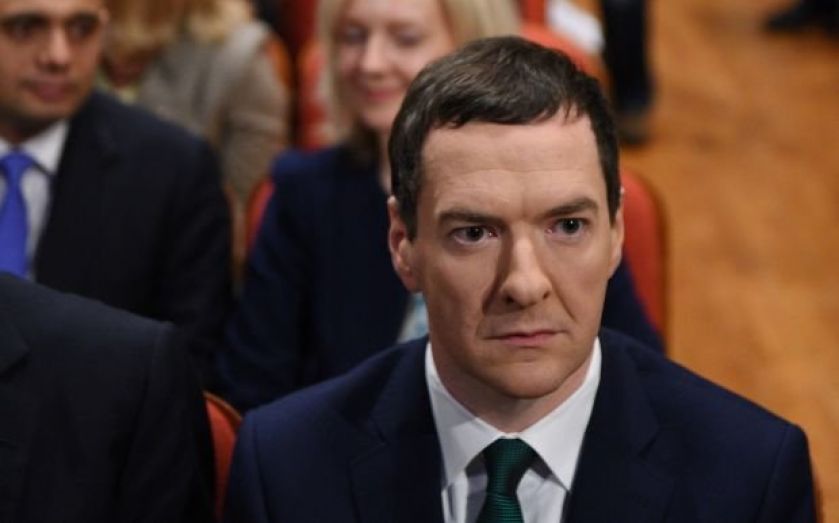The government’s growing debt pile is a threat to Tory tax cuts – Bottom Line

When Labour were finally booted out of office in 2010, the departing chief secretary to the Treasury infamously left his successor a note – “I’m afraid there is no money,” it read. “Kind regards – and good luck!”
Pretty funny, as far as Whitehall humour goes, and not too far from the truth. To one extent there was still plenty of money to spend – indeed, the coalition’s first year in charge saw central government alone splash out a record £607bn. Yet public sector borrowing had jumped to more than £150bn in the previous financial year, while total government debt was rapidly approaching the £1 trillion mark. Money could be spent, but only with the effect of worsening the UK’s dire public finances.
Chancellor George Osborne’s inheritance was tough, but not a lot trickier than the dilemma he finds himself in today. Despite wanting to appear as a responsible book-keeper, the annual deficit is still – four-and-a-half years into his reign – absolutely massive.
When Osborne entered No11, the plan was to reduce the deficit to £37bn by 2014-15. Instead, it is already up to nearly £60bn and we still have half the fiscal year to go. There are good reasons to expect tax revenues to pick up during the latter months of 2014- 15, but an overall deficit in excess of £100bn is still not entirely unfeasible.
Such an eventuality would be largely unveiled, month-by-month, during the run-up to next year’s general election. The negative effect this could have on the Tory election campaign is two-fold:
It would severely knock their claim to be the party of fiscal responsibility. Labour’s hierarchy have already come out fighting over the notion that it was they who “crashed the car” during the final years of their last tenure. The significance of this battleground is not being taken lightly.
But while voters may be somewhat aware of the dangers of high public debt, most are primarily concerned with their own finances – and this is where yesterday’s deficit figures become even more problematic for both Osborne and David Cameron.
The Tories surprised many people last month when they unveiled plans for quite radical tax cuts (should they be elected back to Downing Street) – an even higher personal allowance, a move in the 50p threshold, and some drastic changes to inheritance tax. Tempting stuff.
As well as providing millions of voters with a direct incentive to vote blue, such pledges can also be perceived as a reaction against the success of Ukip. Cameron’s harsh anti-immigration rhetoric of late appears to betray his worries surrounding the Ukip threat. A few tax cuts and some right-wing dog-whistles could, the Tories might think, mitigate the leaking of votes.
But the wider the deficit grows, the less people will believe Tory promises of tax cuts to come. Carefree giveaways combined with frugal debt-cutting? That’ll be a tough sell.